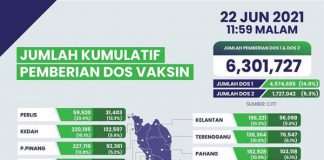KUALA LUMPUR, April 6 – The significantly cheaper prices, along with the increasingly easy and widespread access, are factors driving users to be more inclined to shop on e-commerce platforms such as TikTok Shop rather than visiting physical stores
A senior lecturer at the Faculty of Management and Business, Universiti Teknologi MARA (UiTM) Sabah, Dr Jain Yassin, said that e-commerce platforms also make it easier for users to go through the process of selecting and purchasing goods
“In terms of pricing, undoubtedly, as consumers, we tend to go for online purchases (because they are cheaper). Secondly, with the widespread use of e-commerce now, logically, it simplifies the process of selecting and purchasing goods,” he said.
He said this in response to a special report by Bernama regarding complaints by traders at Jalan Tuanku Abdul Rahman (TAR) Aidilfitri Bazaar of less satisfactory sales, partly due to the emergence of e-commerce platforms like TikTok Shop.
He also did not dismiss the declining purchasing power as one of the factors driving users to be more inclined to shop on e-commerce platforms
Jain suggested that the government consider implementing a price equilibrium mechanism to protect small-scale traders who have to compete with online merchants.
“Perhaps the government could explore suitable price equilibrium mechanisms. This is because sales from platforms like TikTok are not subject to specific taxes, resulting in prices typically being lower on TikTok compared to in the market,” he said.
If online prices are offered too low without any control, he said, it could disrupt market prices and consequently affect traders who are focused on physical business.
Meanwhile, Dr Adilah Azhari, a senior lecturer at the Department of Finance, Centre for Economic, Finance, and Banking Studies, Universiti Utara Malaysia (UUM), opines that the government holds more carnivals to help small-scale traders affected by the competition with online traders boost their income.
”The government needs to do something to generate national income while at the same time stabilising the market,” she said
“When prices (online) are too low, it disrupts market prices. This indirectly undermines existing traders, especially those focusing on physical sales,” she said
Meanwhile, Malaysian Federation of Hawkers and Petty Traders Associations president Datuk Seri Rosli Sulaiman suggested that the government impose taxes on e-commerce transactions on social media platforms, including TikTok, to protect petty traders in the country.
He said the presence of online traders could threaten petty traders in the country because of the much cheaper price offered by the latter.
“I suggest that buyers using online system be taxed because we want a win-win situation,” he said
















